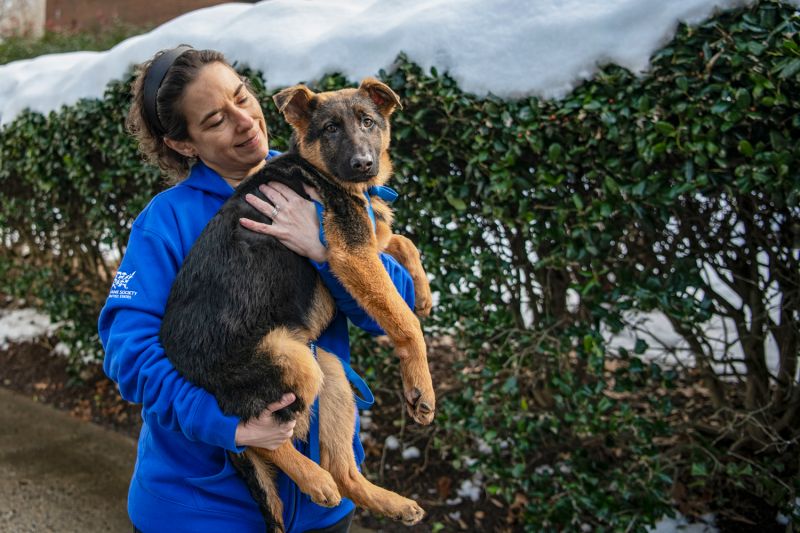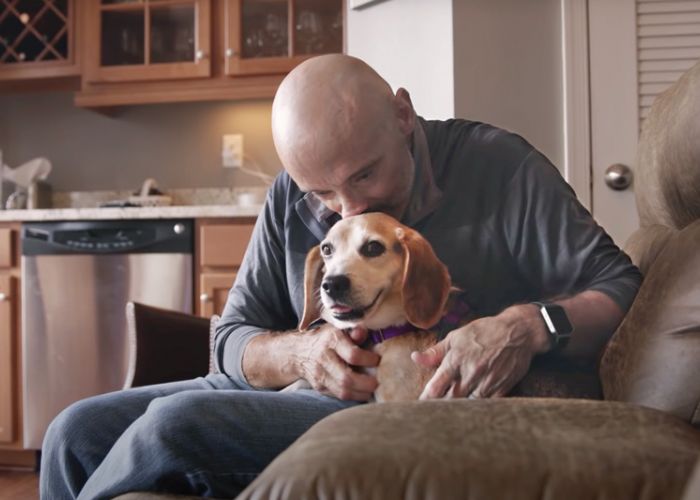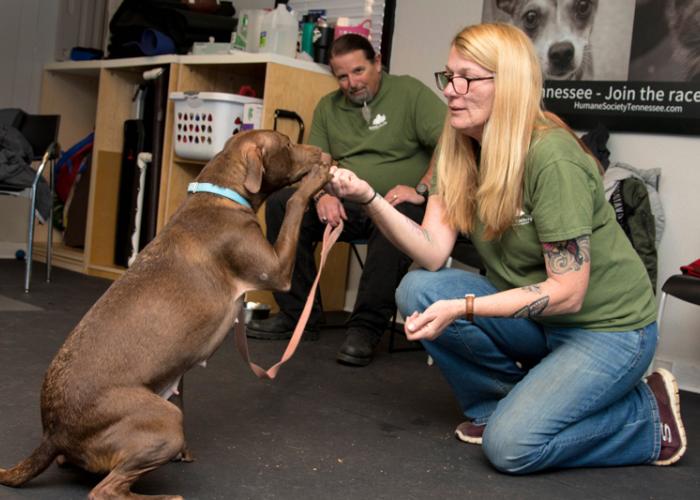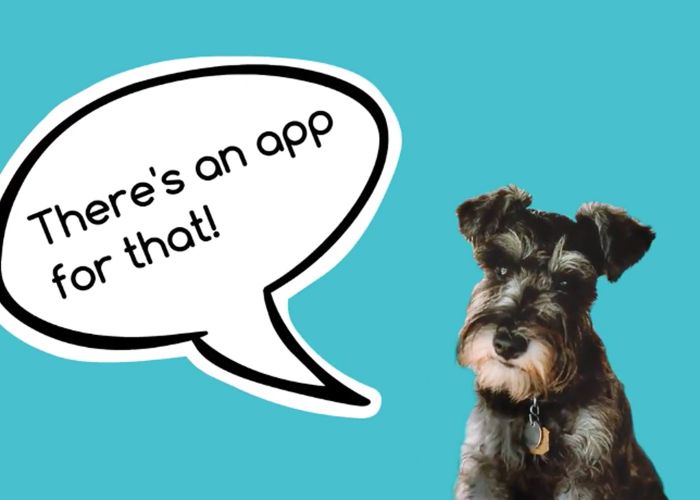A word from us

As the director of outreach and research for Humane World for Animals’ Stop Puppy Mills campaign, my job doesn’t usually involve hands-on animal care. You’re more likely to find me educating the public or studying inspection records on puppy mills. But I’ve also helped out on some of our Animal Rescue Team’s puppy mill closures, cared for displaced pets after a flood and even assisted with our Spayathon™ in Puerto Rico.
Some of my favorite work has been collaborating with our animal crimes manager, Shalimar Hightower, to help shelters that have taken in dogs rescued from puppy mills. One case that stands out in my mind is a shelter that contacted the HSUS for help with some German shepherds it had confiscated from a puppy mill in Pocomoke, Maryland. Somerset County Dog Control had 54 dogs it had held during the former owner’s trial; 40 dogs had been removed from the scene, and an additional 14 puppies were born at the shelter while the case was pending.
The rural shelter’s dedicated animal control officers had removed the dogs from filthy and dangerous conditions and cared for them for about six months in their shelter, all while compiling a legal case and seeing it through to the end. The result was a conviction, and the dogs were finally free to go to new homes.
Much of my work happens in an office, but fitting in a little hands-on work with puppy mill dogs always helps me feel recommitted.
We were impressed by how much the shelter accomplished, given that it had only three animal control officers to cover the entire county and perform all the shelter functions, all on a very tight budget. The Stop Puppy Mills team, along with the Companion Animals staff and Animal Rescue Team, helped secure two grants to help cover the dogs’ veterinary costs. We also designated the shelter to receive pet food, toys and other supplies collected from our staff. We gave a Somerset County officer a scholarship to our Animal Care Expo in New Orleans.
We also offered to help Somerset County Dog Control move dogs from the remote shelter to one with a larger pool of potential adopters. Days later, members of the HSUS’s Stop Puppy Mills team and Animal Rescue Team picked up about half of the German shepherds for transfer to the Humane Society of Washington County in Hagerstown, Maryland.
During a stopover at our headquarters, we took each of the dogs and puppies out for an exercise break. The puppies had been born in the shelter months earlier, with limited opportunities to play outside, and had never seen snow. It was wonderful to see the frightened puppies brighten up when they saw the white stuff. We romped and played with them for a while on our front lawn, before putting them back in our van with a fresh set of bedding and fresh drivers. Our campaign’s senior director, John Goodwin, and I drove them to our shelter partner. A few hours later, I helped unload the puppies as the good people at the Humane Society of Washington County welcomed them with open arms.
Much of my work happens in an office, but fitting in a little hands-on work with puppy mill dogs always helps me feel recommitted. When the Stop Puppy Mills team, Animal Rescue Team, Companion Animals team and shelters work together, we can crack down on puppy mills and help shelter pets at the same time.






